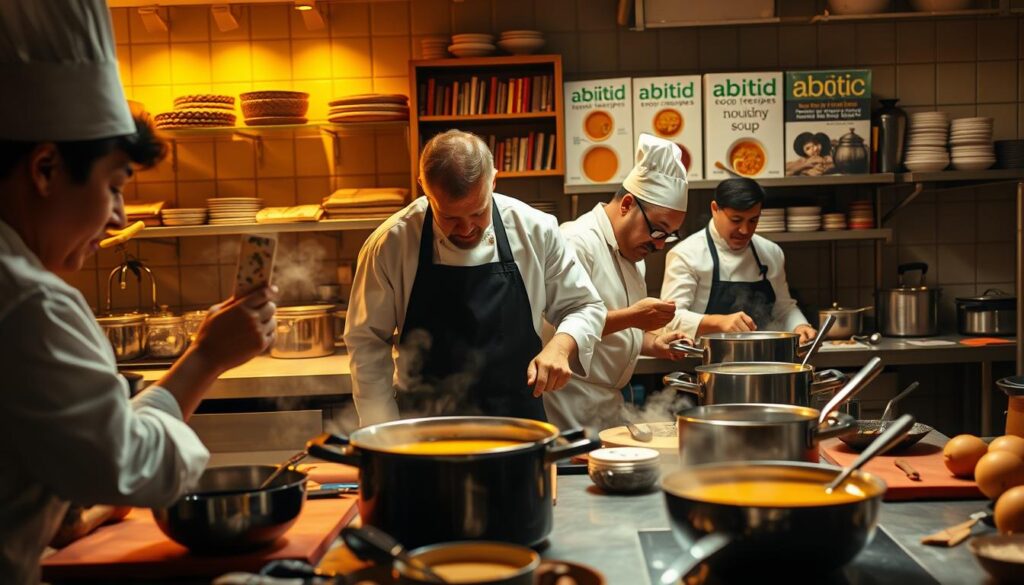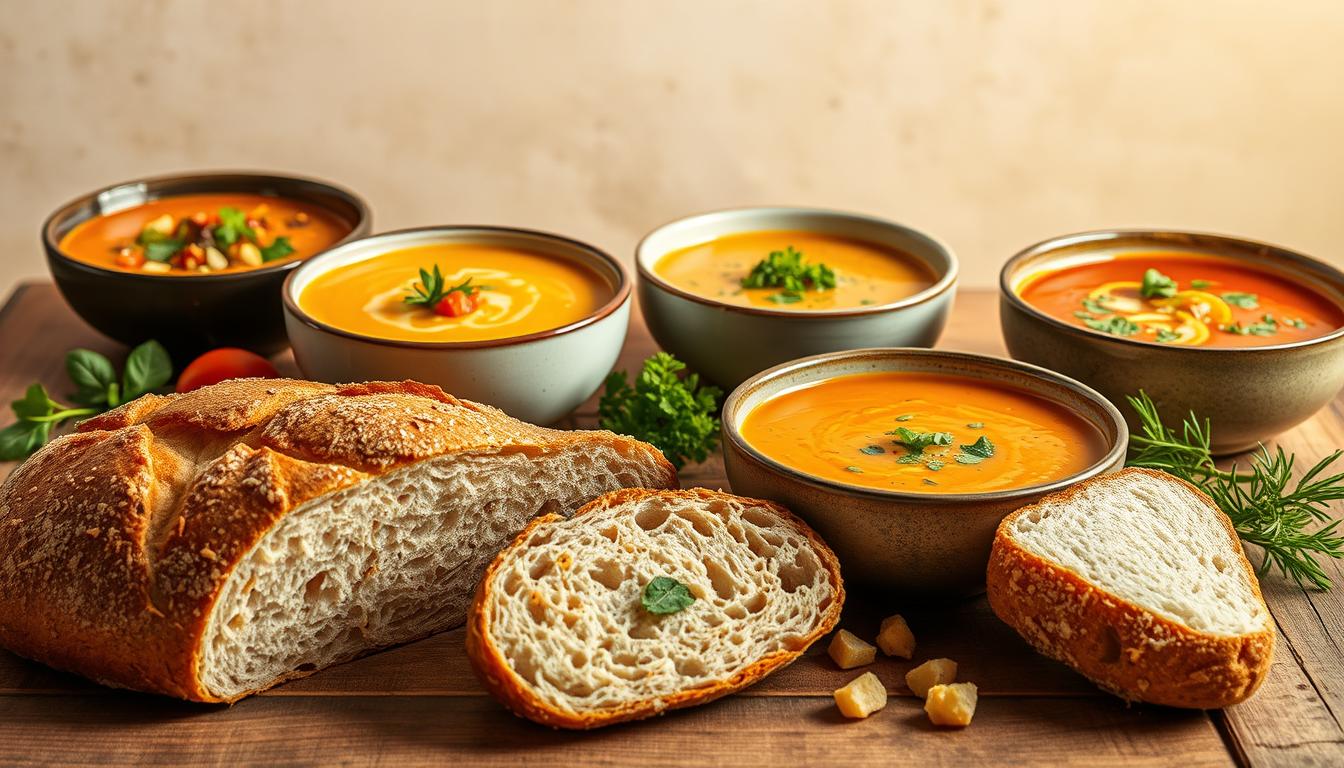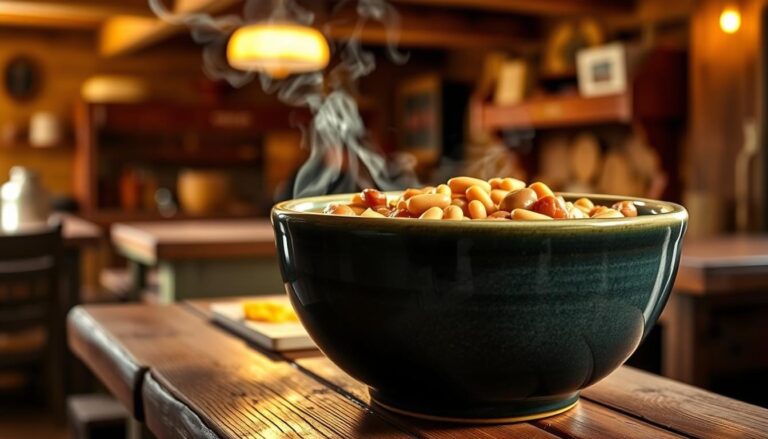Abiotic Factor Soup Recipes: Nourishing Dishes for Healthy Eating
Have you ever wondered how a simple bowl of soup could be the key to survival in a game? In Abiotic Factor, a quirky open-world survival crafting game, food isn’t just about filling your hunger and thirst. It’s about strategy, skill, and staying alive in a world full of challenges.
As a player, you’ll gather materials, craft tools, and unlock recipes that provide special buffs. These buffs can give you an edge, like Quick Reflexes or Sweet Tooth, making gameplay smoother and more enjoyable. But here’s the catch: you need a certain cooking skill level to unlock these recipes.
From the very start, you’ll need basic tools like a pot, water, and a stove. Ingredients like meat, tomatoes, and even alien drumsticks can turn into nourishing dishes. These recipes aren’t just food—they’re your lifeline. They help you maintain your hunger and thirst levels, which are crucial for survival.
So, are you ready to master the art of cooking in Abiotic Factor? Let’s dive into the essentials of crafting the perfect dish and how it fits into your overall survival strategy.
Key Takeaways : Abiotic Factor Soup Recipes
- Food in Abiotic Factor is essential for managing hunger and thirst levels.
- Different recipes provide unique buffs that enhance gameplay.
- A specific cooking skill level is required to unlock advanced recipes.
- Basic tools like a pot, water, and stove are necessary from the start.
- Ingredients range from common items like tomatoes to unique finds like alien drumsticks.
- Mastering cooking is a key part of your survival strategy in the game.
Discovering the World of Abiotic Factor Soup Recipes
In the world of survival crafting, mastering the art of cooking can be a game-changer. Whether you’re battling hunger or thirst, the right dish can keep you alive and give you an edge. But it’s not just about filling your stomach—it’s about strategy.
As you explore the game, you’ll uncover recipes that are more than just food. They’re tools for survival. Each dish you craft can provide unique buffs, like heightened senses or increased XP. But beware—using the wrong ingredients can lead to bad soup and harmful debuffs.
The Role of Soup in Survival and Crafting
Soup isn’t just a meal; it’s a lifeline. In Abiotic Factor, it helps you manage hunger and thirst levels, which are critical for staying alive. Properly crafted dishes can also enhance your crafting abilities, making it easier to gather resources and build tools.
To succeed, you’ll need a pot, water, and a stove. Ingredients like meat and tomatoes can turn into nourishing meals. But the real challenge lies in finding the right combinations. A well-made dish can grant buffs that slow down hunger and thirst rates, while a poorly made one can leave you worse off.
Understanding Buffs and Debuffs in the Game
Buffs and debuffs play a crucial role in your survival. A good recipe can grant you abilities like Quick Reflexes or Heightened Senses, giving you an edge in combat or exploration. On the other hand, bad soup can lead to debuffs that hinder your progress.
“Cooking isn’t just about filling your hunger—it’s about gaining an advantage.”
Here’s a quick comparison of some common buffs and debuffs:
| Effect | Type | Impact |
|---|---|---|
| Quick Reflexes | Buff | Increases combat speed |
| Heightened Senses | Buff | Improves detection of enemies |
| Slow Digestion | Debuff | Reduces hunger rate |
| Nausea | Debuff | Decreases movement speed |
Understanding these effects is key to optimizing your survival. By carefully selecting ingredients and recipes, you can ensure that every meal you prepare works in your favor.
Essential Ingredients and Tools for Soup Cooking in Abiotic Factor
Crafting the perfect meal in a survival game requires the right tools and ingredients. In Abiotic Factor, your ability to manage hunger and thirst depends on how well you prepare your dishes. To succeed, you’ll need a combination of essential equipment and carefully selected components.
Must-Have Cooking Tools and Equipment
Your cooking setup is the backbone of your survival strategy. A portable stove and a sturdy soup pot are non-negotiable. These tools allow you to boil water and combine ingredients effectively. Without them, even the best components won’t yield a nourishing dish.
Water is another critical resource. Always ensure you have access to clean, purified water. Contaminated sources can lead to harmful effects, so invest in purification methods early. Proper use of these tools ensures your recipes provide the buffs you need to thrive.
Key Ingredients: From Alien Drumsticks to Super Tomatoes
Ingredients play a pivotal role in crafting effective dishes. Common items like tomatoes and meat are easy to find, but rarer components like alien drumsticks and super tomatoes can elevate your recipes. These unique items often provide stronger buffs, giving you an edge in challenging situations.
Combining farm-grown ingredients with scavenged materials can yield excellent results. For example, pairing a super tomato with an alien drumstick might grant you heightened senses or increased XP. Experimentation is key to discovering the best combinations.
By mastering the use of tools and ingredients, you’ll not only manage hunger and thirst but also gain powerful advantages. Every meal you prepare becomes a step toward survival and success.
Mastering abiotic factor soup recipes
The right recipe can make all the difference in your survival journey. In Abiotic Factor, cooking isn’t just about filling your hunger and thirst—it’s about gaining powerful buffs that enhance your gameplay. Understanding how these effects work and mastering the preparation process is key to thriving in the game.
Understanding Buff Effects and Skill Boosts
Every dish you prepare can grant unique buffs that improve your performance. For example, a well-crafted soup might give you Heightened Senses, helping you detect enemies faster. On the other hand, a poorly made dish could lead to debuffs like Nausea, slowing you down.
Your cooking skill level plays a big role in unlocking advanced recipes. As you progress, you’ll gain access to dishes that provide stronger buffs. For instance, combining a Raw Alien Drumstick with water in a pot can create a meal that boosts your XP gain. Always aim to level up your cooking skill to maximize your survival potential.
Step-by-Step Soup Preparation Techniques
To craft the perfect soup, follow these steps:
- Gather Ingredients: Start with essentials like water, meat, and vegetables. For advanced recipes, look for rare items like alien drumsticks.
- Prepare Your Tools: Ensure you have a pot and a stove. These are crucial for boiling and combining ingredients.
- Cook with Precision: Timing and temperature control are key. Overcooking can ruin your dish, while undercooking may leave it ineffective.
- Experiment Wisely: Try different ingredient combinations to discover new recipes. Keep notes on what works and what doesn’t.
By following these steps, you’ll create meals that not only satisfy your hunger and thirst but also give you the edge you need to survive and thrive.
Troubleshooting Common Cooking Issues
Cooking in a survival game can be tricky, but avoiding common mistakes ensures your meals are effective. Even a small error can lead to a bad soup that harms rather than helps. Understanding these pitfalls is key to maintaining your hunger and thirst levels while gaining valuable buffs.

Avoiding Harmful Ingredients and Poor Combinations
One of the biggest mistakes is using mismatched or contaminated ingredients. For example, combining certain toxins or irradiated materials can lead to harmful effects. Always check the quality of your components before adding them to the pot.
Here’s a quick checklist to avoid errors:
- Ensure ingredients are clean and free from radiation.
- Use the right proportions to maintain balance in your recipe.
- Avoid mixing incompatible items that could cancel out buffs.
Fixing Recipe Errors and Improving Outcomes
If you end up with a bad soup, don’t panic. Isolate the issue by reviewing your steps. Did you use the wrong ingredient? Was the cooking time too long or too short? Adjusting these factors can turn a failed attempt into a success.
For example, overcooking can destroy the nutritional value of your dish, while undercooking may leave it ineffective. Always monitor the process closely to ensure the best results.
“A well-prepared meal can be the difference between survival and failure. Take the time to get it right.”
Maintaining Inventory and Sourcing Reliable Materials
Keeping a well-organized inventory is crucial. Track your water, ingredients, and tools to avoid last-minute shortages. Reliable sourcing ensures you always have access to high-quality materials.
For instance, partnering with a botanist can provide fresh, farm-grown items that enhance your dishes. Scavenged materials should be carefully inspected to avoid contamination.
By following these tips, you’ll create meals that not only satisfy your hunger and thirst but also provide the buffs you need to thrive in the game.
Boosting Your Survival and Cooking Skills
Survival in a challenging game environment hinges on your ability to manage hunger and thirst effectively. By mastering your cooking skills and experimenting with diverse recipes, you can gain powerful buffs that enhance your gameplay. Let’s explore how to optimize your survival strategy through smart cooking and resource management.
Managing Hunger, Thirst, and Buff Benefits
Keeping your hunger and thirst levels in check is crucial for survival. A well-crafted dish not only satisfies these needs but also provides buffs that improve your performance. For example, a hearty soup made with fresh ingredients can grant Heightened Senses, helping you detect enemies faster.
Here’s a quick comparison of common buffs and their effects:
| Buff | Effect |
|---|---|
| Quick Reflexes | Increases combat speed |
| Heightened Senses | Improves enemy detection |
| Slow Digestion | Reduces hunger rate |
Always aim to prepare meals that offer these advantages, as they can make a significant difference in your gameplay.
Enhancing Your Cooking Level and Experimenting with New Recipes
Leveling up your cooking skill unlocks advanced recipes with stronger buffs. Start with basic dishes like vegetable soup and gradually experiment with unique ingredients like alien drumsticks. Each successful recipe boosts your skill level, allowing you to craft more complex meals.
Here are some tips to improve your cooking expertise:
- Practice regularly to gain experience.
- Experiment with different ingredient combinations.
- Keep track of recipes that work best for your needs.
By consistently improving your cooking skill, you’ll gain access to dishes that provide greater benefits.
Integrating Farm-Grown and Scavenged Materials
A well-rounded cooking repertoire combines farm-grown produce with scavenged items. Fresh tomatoes and herbs from your farm can be paired with rare finds like alien drumsticks to create powerful meals. This approach ensures you always have access to high-quality ingredients.
Here’s how to integrate these materials effectively:
- Grow staple crops like tomatoes and herbs on your farm.
- Scavenge for unique items like alien drumsticks in the game world.
- Combine both types of ingredients to maximize buff benefits.
By blending farm-grown and scavenged materials, you’ll create meals that enhance your survival and gameplay experience.
Conclusion
Mastering the art of cooking in a survival game can turn the tide in your favor. Properly managing hunger and thirst is essential, and the right recipe can provide powerful buffs to enhance your gameplay. From a simple pot of water to rare ingredients, every meal you prepare can make a difference.
Experiment with different combinations to find what works best for your survival strategy. Careful resource management and reaching the appropriate cooking level are key to unlocking advanced dishes. Avoid common pitfalls like using contaminated materials or mismatched components.
By mastering these skills, you not only protect your character but also enrich your overall gaming experience. So, grab your tools, gather your ingredients, and start cooking your way to survival and success.
What tools do I need to start cooking in Abiotic Factor?
You’ll need basic cooking tools like a cooking pot and a stove. These are essential for preparing meals and managing your hunger and thirst levels effectively.
How do I avoid making bad or harmful soups?
Focus on using fresh, high-quality ingredients like alien drumsticks or super tomatoes. Avoid combining incompatible items, as they can lead to weird soups that may cause radiation or other negative effects.
What are the benefits of cooking soups in the game?
Soups provide buffs that boost your survival stats, such as reducing hunger and thirst. They also help improve your cooking skill level, allowing you to craft more advanced dishes.
How can I improve my cooking skill level?
Practice regularly by preparing different dishes. Experiment with farm-grown and scavenged materials to unlock new recipes and gain experience points.
What ingredients are best for crafting effective soups?
Use a mix of meat, vegetables, and unique items like alien drumsticks or super tomatoes. These ingredients often provide stronger buffs and better skill boosts.
How do I manage hunger and thirst effectively?
Keep a steady supply of food and water by crafting soups and other meals. Regularly check your hunger and thirst levels to avoid getting into dangerous situations.
Can I grow my own ingredients for cooking?
Yes, you can integrate farm-grown materials like tomatoes or rump into your recipes. This ensures a steady supply of fresh ingredients for your dishes.
What happens if I use harmful ingredients in my soups?
Using harmful or incompatible items can result in bad soups that cause radiation or other negative effects. Always double-check your ingredient list before cooking.







